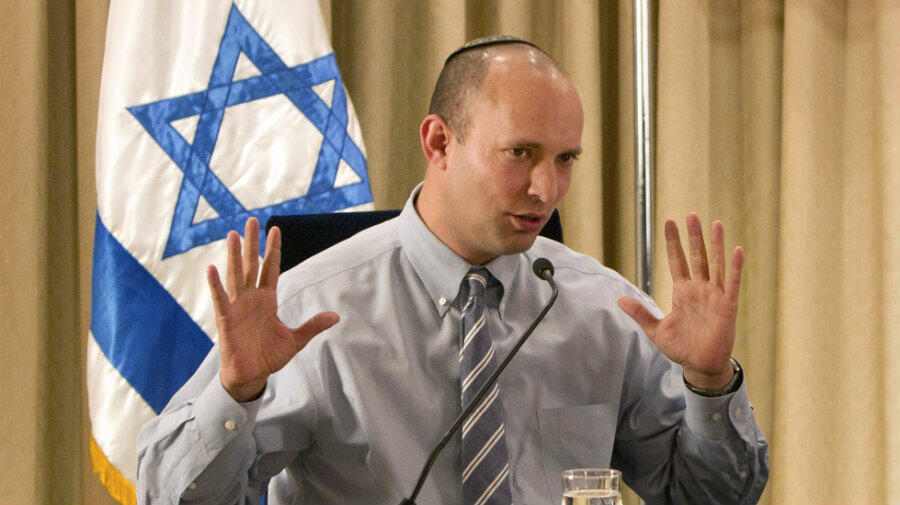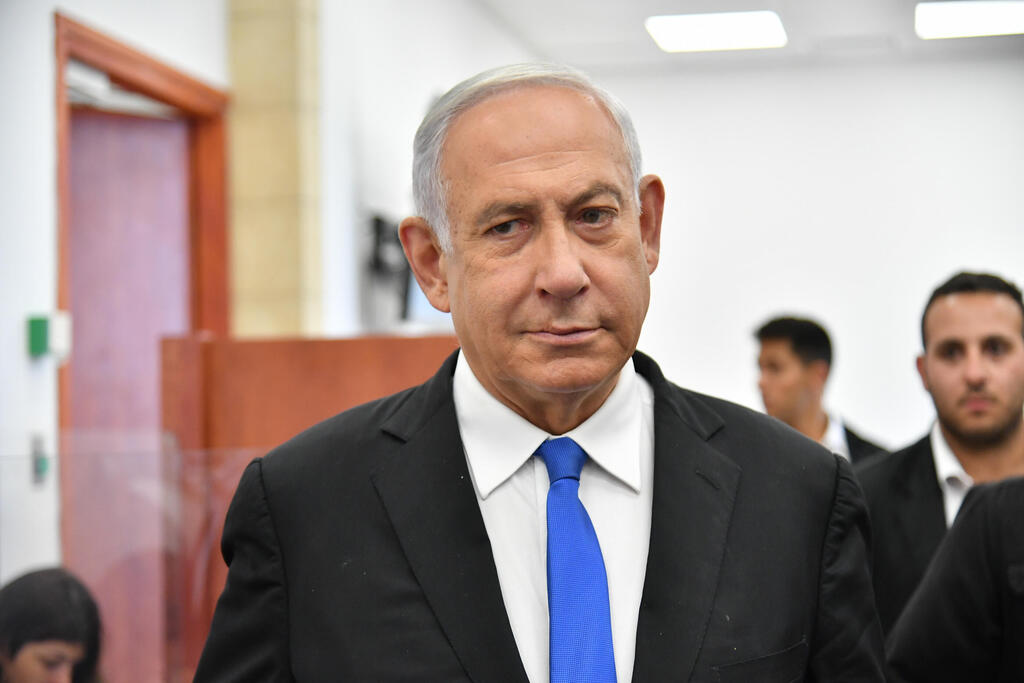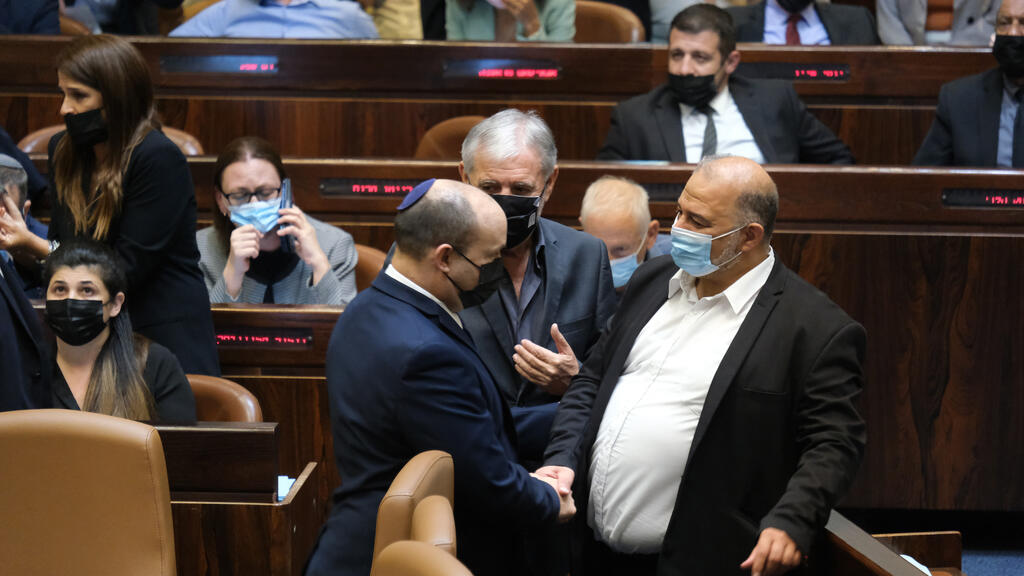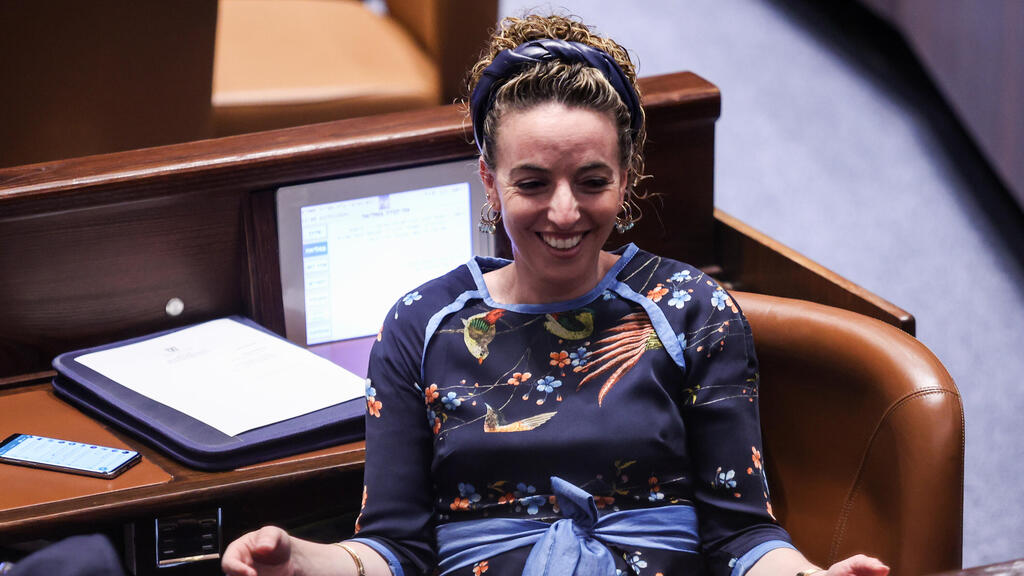Prime Minister Naftali Bennett appealed for more open support from what he described as Israel's silent majority on Friday as he marked a year in office with his governing coalition tenuously controlling half the seats in parliament.
In a 27-page pamphlet circulated over social media, Bennett sought to play up his achievements and fend off his predecessor, Benjamin Netanyahu, a conservative who as opposition leader has accused the government of being soft on national security.
Bennett, a nationalist, ended Netanyahu's record 12-year reign in June 2021 at the head of a rare cross-partisan alliance that includes an Islamist party representing members of Israel's 21% Arab minority, many of whom identity with the Palestinians.
Casting attacks on him as offset by the "silent Zionist majority", Bennett urged his supporters: "Raise your voice. Spread our message that decent people with different views who love the country can sit together and work for its betterment."
"About a year ago, the State of Israel reached one of the most difficult moments the country had ever known," Bennett wrote.
"Chaos, endless rounds of elections, government paralysis, the cities of Lod and Acre ablaze in riots," Bennett said referring to Last May's riots in mixed Jewish-Arab cities.
"Israel was led by one man who enslaved the country in the service of his legal problems, while in the face of murderous enemies, the country displayed a terrible weakness," the prime minister said in reference to his predecessor, Benjamin Netanyahu.
"We were just a few days away from a fifth election campaign that would have torn this country apart, and then I made the hardest and most important decision of my life: To form a government that will save Israel from this exact chaos and will restore it to proper function, and to join in with people with different opinions of my own in order to save the country," Bennett wrote.
Bennett stated that he knew the move would turn a "mighty poisonous machine" against him, and so he took it upon himself to be the one who will shield the State of Israel, and together with his political partners he reestablished a functioning country.
Bennett went on to say that despite accusations against him for cooperating with Islamist Ra'am's leader Mansour Abbas, Netanyahu had been in negotiations with the Arab Knesset list to join his own government and was prevented from doing so by his far-right partners in the Religious Zionist party.
A lawmaker from Bennett's own party, former coalition whip quit in April, citing sectarian disputes and ending his 61-59 seat majority in the Knesset. That left him vulnerable to no-confidence motions and banking on disarray among the opposition to survive.
An opinion poll broadcast by Channel 12 TV last week found that, were an election held now, Netanyahu would come out ahead, set to wield 59 parliament seats while parties in the current coalition would end up with 55. Among Netanyahu's allies are ultra-Orthodox Jewish parties that sometimes distance themselves from Zionism.
Forty-six percent of Israelis deemed Netanyahu best-suited for top office, whereas 21% favoured Bennett, the Channel 12 poll found.
The incumbent's political jeopardy comes at an important diplomatic juncture. He is due to host U.S. President Joe Biden soon - perhaps later this month - to strategize on Iran and discuss the possible warming of Israel's ties with Saudi Arabia.





